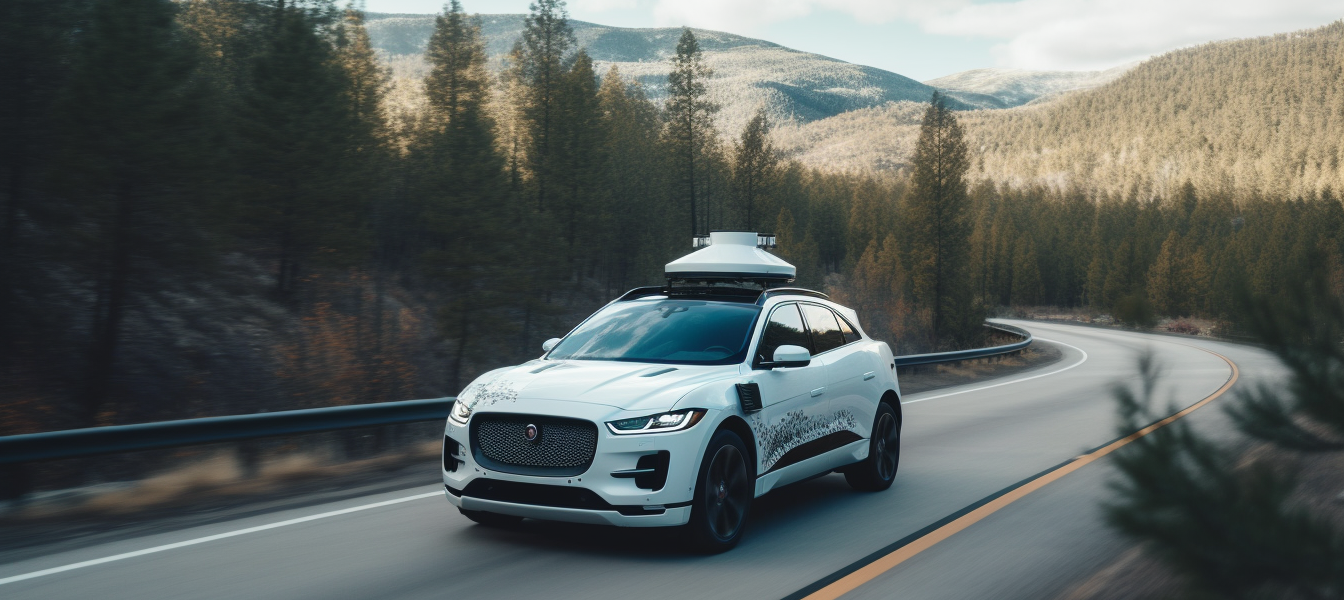The future of transportation is safer, greener, and more efficient thanks to the development of self-driving cars.
The Impact of Self-Driving Cars on Society
As technology continues to advance at an unprecedented pace, the transportation landscape is undergoing a significant transformation. Self-driving cars, once a concept relegated to the realm of science fiction, are now a reality that promises to revolutionize the way we travel. The mass adoption of autonomous vehicles has far-reaching implications for society, from enhanced safety and reduced emissions to improved efficiency and increased accessibility.
Enhanced Safety through Autonomous Vehicles
One of the most significant benefits of self-driving cars is their potential to dramatically reduce the number of accidents on our roads. Human error is a leading cause of traffic accidents, accounting for approximately 90% of all crashes. The advanced sensors and AI algorithms in autonomous vehicles can help mitigate these risks by making real-time decisions based on their surroundings.
The implications are staggering. With human drivers prone to distraction, fatigue, and recklessness, the probability of accidents decreases significantly when autonomous vehicles take control. A study conducted by the National Highway Traffic Safety Administration (NHTSA) estimated that the widespread adoption of self-driving cars could result in a 90% reduction in traffic-related fatalities.
Self-driving cars have already shown impressive results in reducing collisions. In tests conducted by companies like Waymo and Tesla, autonomous vehicles have logged millions of miles without incident. The data collected from these experiments is invaluable in fine-tuning the algorithms and sensors that enable self-driving technology to adapt to complex real-world scenarios.
Reducing Emissions and Contributing to Sustainability
The environmental benefits of self-driving cars are another significant advantage of this emerging technology. As autonomous vehicles become more widespread, we can expect to see a shift towards electric and hybrid models, which have a significantly smaller carbon footprint than traditional gasoline-powered cars.
The transition to electric vehicles (EVs) is already underway, with many countries investing heavily in EV infrastructure and incentivizing consumers to make the switch. Self-driving cars will further accelerate this trend by providing a seamless experience for drivers who may be hesitant to adopt EV technology due to concerns about charging infrastructure or range anxiety.
AI-powered coordination optimizes traffic flow, reducing congestion and fuel consumption. This leads to lower emissions, as well as reduced wear and tear on roads and bridges. In fact, studies have shown that the widespread adoption of self-driving cars could reduce greenhouse gas emissions by up to 70% in major cities worldwide.
Improved Efficiency with Autonomous Driving
Efficiency is another key advantage of autonomous vehicles. By automating the driving process, self-driving cars facilitate more efficient use of time, allowing passengers to work, relax, or engage in other activities while in transit. This could lead to increased productivity and an improved quality of life for individuals who would otherwise spend long hours behind the wheel.
Imagine being able to attend virtual meetings during your daily commute, respond to emails without worrying about traffic congestion, or enjoy a quiet cup of coffee while traveling. The possibilities are endless when you’re not burdened by the responsibility of driving.
Self-driving cars also have the potential to reduce traffic congestion and alleviate the pressure on our transportation infrastructure. By optimizing traffic flow in real-time, autonomous vehicles can help minimize delays and reduce travel times. This could lead to significant cost savings for businesses and individuals alike.
Enhancing Mobility and Accessibility
The widespread adoption of self-driving cars is expected to enhance mobility for those who may not have access to traditional forms of transportation, such as the elderly or people with disabilities. Autonomous vehicles offer newfound freedom and independence, making transportation more inclusive and accessible for all members of society.
Imagine a world where seniors can travel without relying on family members or public transportation, allowing them to maintain their independence and engage in activities they love. Self-driving cars also have the potential to revolutionize transportation for people with disabilities, providing a safe and reliable means of getting around without having to rely on others.
The benefits of self-driving cars are clear: enhanced safety, reduced emissions, improved efficiency, and increased accessibility. As this technology continues to evolve and become more widespread, we can expect to see significant changes in the way we travel and interact with our surroundings.
In conclusion, the impact of self-driving cars on society will be far-reaching and profound. From reducing accidents and emissions to improving efficiency and accessibility, autonomous vehicles have the potential to revolutionize the way we live, work, and interact with one another. As technology continues to advance, it’s essential that we prioritize innovation and invest in the infrastructure needed to support this emerging industry.
The Future of Transportation
As self-driving cars become more widespread, we can expect to see significant changes in the transportation landscape. From ride-hailing services to public transit, autonomous vehicles will disrupt traditional models and create new opportunities for growth and innovation.
In cities around the world, governments are already exploring ways to integrate self-driving technology into their infrastructure. This includes creating dedicated lanes for autonomous vehicles, establishing regulations for testing and deployment, and investing in EV charging infrastructure.
The shift towards autonomous transportation is not just about reducing emissions or improving safety; it’s also about creating a more sustainable and equitable society. By making transportation more accessible and efficient, we can reduce congestion, alleviate the pressure on our roads and bridges, and create new economic opportunities for businesses and entrepreneurs.
As we look to the future of transportation, one thing is clear: self-driving cars are here to stay. With their potential to transform the way we travel, it’s essential that we prioritize innovation and invest in the infrastructure needed to support this emerging industry.
The Benefits of Autonomous Vehicles
Self-driving cars offer a multitude of benefits for individuals, businesses, and society as a whole. Some of the key advantages include:
- Enhanced safety: Self-driving cars can reduce accidents by up to 90% through advanced sensors and AI algorithms.
- Reduced emissions: Electric and hybrid models will become more prevalent, reducing greenhouse gas emissions and contributing to sustainability.
- Improved efficiency: Autonomous vehicles optimize traffic flow, reducing congestion and fuel consumption.
- Increased accessibility: Self-driving cars enhance mobility for the elderly and people with disabilities, making transportation more inclusive and accessible.
As we move towards a future where autonomous vehicles are ubiquitous, it’s essential that we prioritize innovation and invest in the infrastructure needed to support this emerging industry. By doing so, we can create a safer, greener, and more efficient society that benefits everyone.
Conclusion
The impact of self-driving cars on society will be far-reaching and profound. From reducing accidents and emissions to improving efficiency and accessibility, autonomous vehicles have the potential to revolutionize the way we live, work, and interact with one another. As technology continues to advance, it’s essential that we prioritize innovation and invest in the infrastructure needed to support this emerging industry.
In conclusion, self-driving cars are not just a futuristic concept; they’re a reality that promises to transform the transportation landscape. By embracing this technology and prioritizing innovation, we can create a safer, greener, and more efficient society that benefits everyone.





